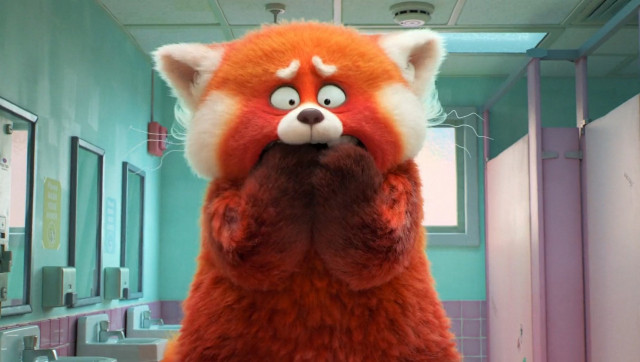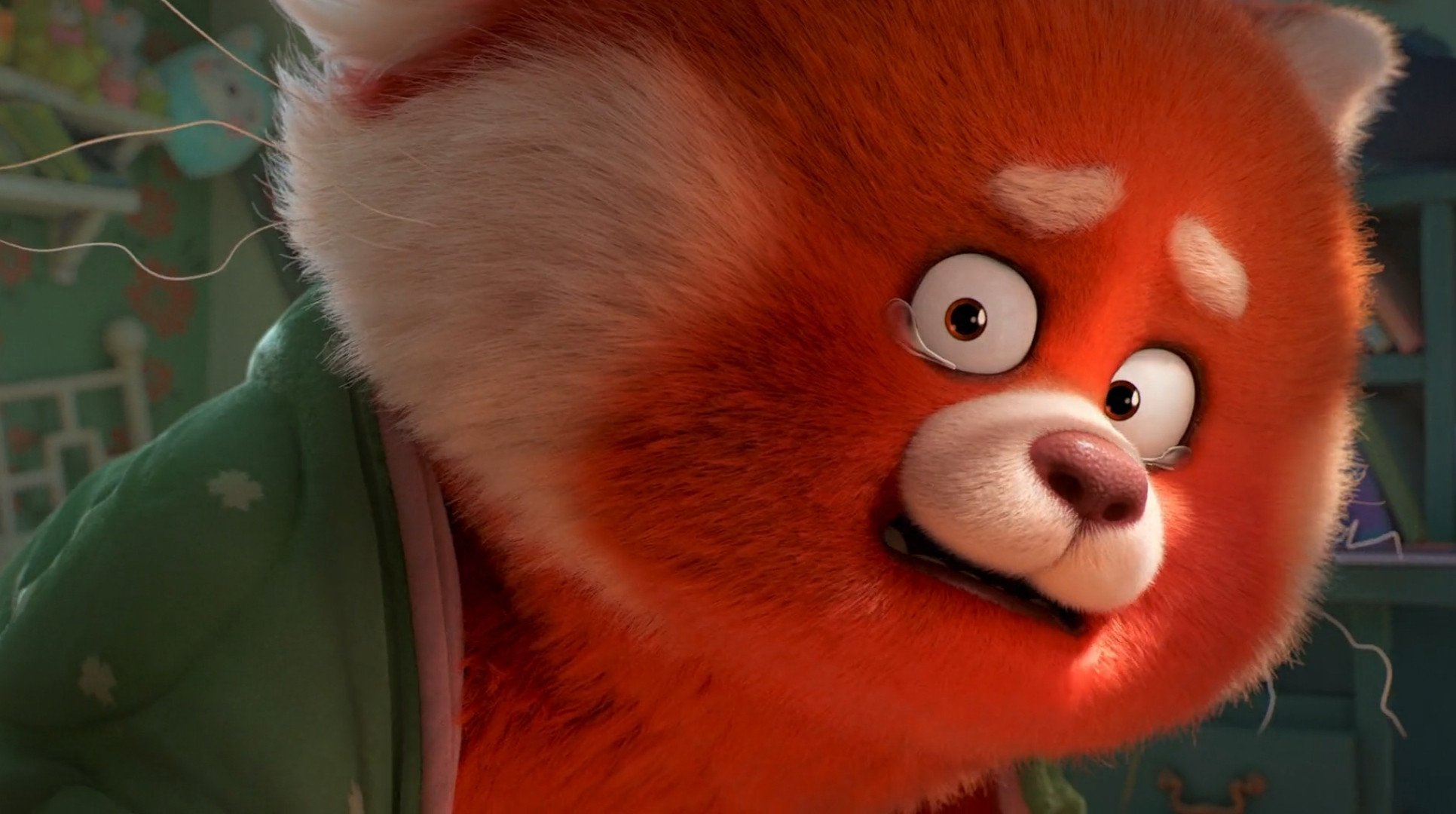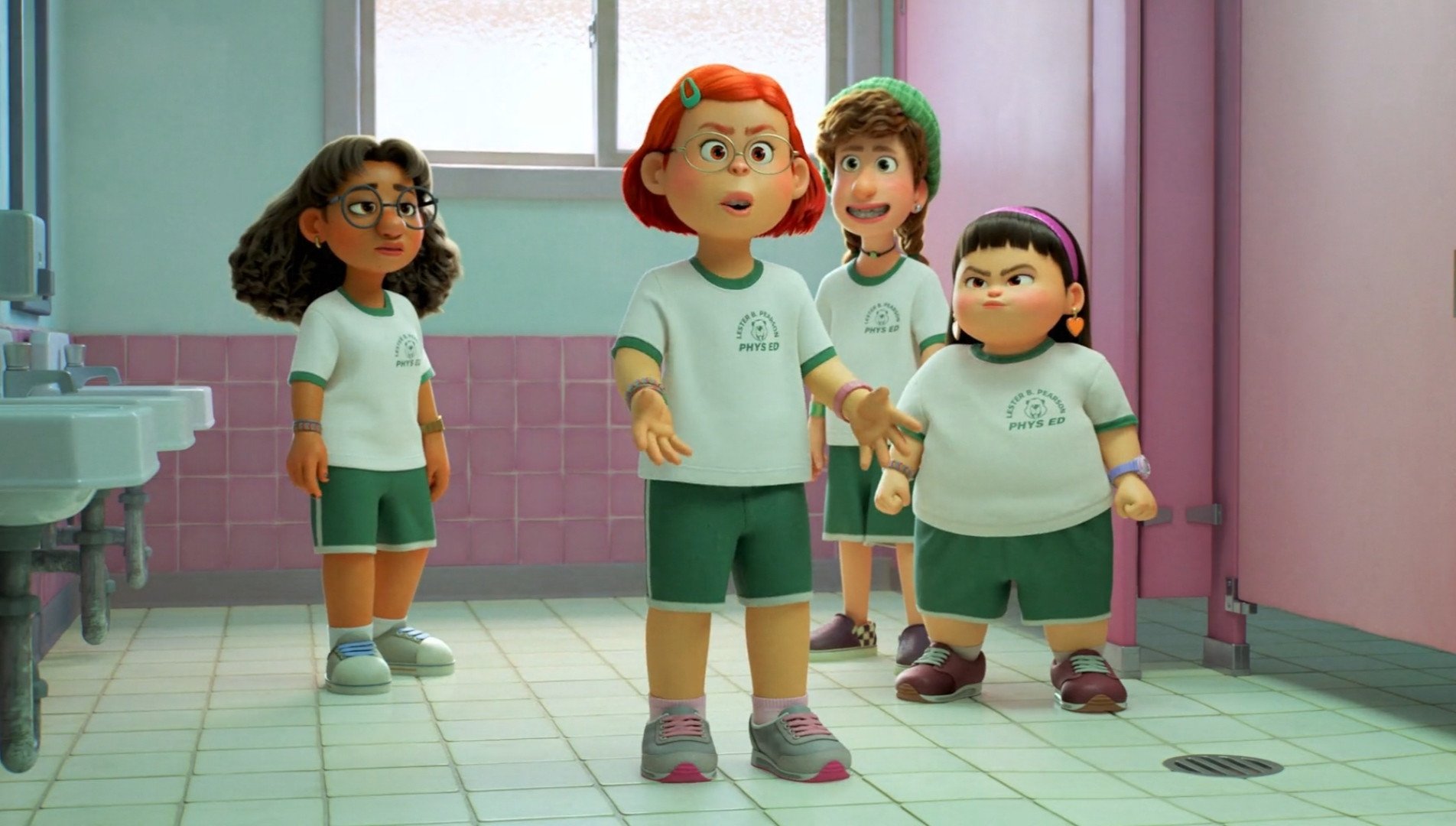Review: ‘Turning Red’ offers a sincere look at the wonderfully weird world of 13-year-old girls
Animated tween dramedy places female puberty in the league of universal childhood experiences where it belongs

Few moments in a girl’s life inspire the kind of confusion, all-encompassing anxiety and sheer, unprecedented panic as that which manifest at the first sign of her period. While those unaware of the biological processes at play turn to their catalogue of (mostly terminal) illnesses to explain their affliction, others struggle to come to terms with the discomfiting fact that it's really happening. As the floodgates open, so do the doors to the unfamiliar world of adolescence, and not crossing over seizes to be an option. Turning Red aims to demystify the often distressing experience of this forceful transition, and it does so in Pixar’s typical adorably fuzzy and heartwarming fashion.
Mei Lee (Rosalie Chiang), a 13-year-old over-obedient Chinese-Canadian girl, fully engrossed in her world of dorky hobbies, equally quirky friends, straight As and boybands, wakes up one morning to find herself transformed into a giant red panda, a matrilineal malady that turns out to have more to it than meets the eye. As Mei grapples with bodily changes, sexual attraction, mood instability and the growing rift she feels forming between her childhood self and who she has become, her mother, Ming (Sandra Oh), fights to contain the change. Offering a sincere insight into the tumultuous process of young girls growing up, this tween dramedy has been a long time coming.
Apart from the obvious puberty-related allegory, Turning Red casually references menstruation as Mei’s mother frantically gathers sanitary pads and ibuprofen after mistakenly assuming that her daughter, who has locked herself away in the bathroom in a panic over her panda self, has gotten her first period. The relaxed integration of the otherwise taboo topic lifts female puberty from the over-sexualised context it has been relegated to and places it in the league of universal childhood experiences where it belongs.

However, the film’s achievements are not limited to its handling of menstruation. Generational curses, female friendships, as well as the wonderfully weird experience of being a tween girl figure prominently in the story, adding further depth to the delightful coming of age tale.
According to a history narrated by Ming, the fierce and powerful red panda spirit, which initially emerged as an ancestral gift, quickly devolved into an “inconvenience” after the family migrated from China to Canada. Due to the women’s need to fit into their new environment, they locked away their powers in amulets following a (possibly painful) magic ritual, with there being an expectation for Mei to follow in the same footsteps. Feeling a growing affinity for the panda, Mei refuses, choosing instead to embrace a part of her heritage forced into the shadows due to the diasporic need to assimilate. In a particularly emotional (and gorgeously animated) sequence, Mei holds the hand of her mother’s younger self and guides her across the spirit realm as she transitions into an adult once again.
Writer and director Dommee Shi imbues the mother-daughter relationship with the kind of sincerity and insight that only comes with age and experience, and while Mei’s maturity with regards to her mother’s inherited trauma is well beyond her mere 13 years, it does not feel forced or out of place. Shi may be drawing from deeply personal experiences of growing up Chinese-Canadian in Toronto, but the relatability of the film does not suffer, simply due to the fact that when it comes down to it, healing of generational wounds is an enterprise undertaken by many.
Female relationships take centre stage in Turning Red, with Mei’s group of best friends serving as her anchor when things don’t feel as comfortable at home anymore. As Mei’s relationship with her mother falls apart to be rebuilt once again over the course of the film, her friends stand steady in support. The film captures the unique essence of tween friendships, the ones you foster at the end of one part of your life and the beginning of another. Formed on the basis of shared obsessions over boybands and other geeky go-tos, the bond between Mei and her friends graduates to a deeper connection when the life she once knew stops making sense.

Offering one of the most sincere depictions of 13-year-old girls in an animated film since Studio Ghibli’s Kiki’s Delivery Service, Turning Red encapsulates the experience of embracing adolescence in all of its cringe-worthy glory. The art style employed for the film draws clear inspiration from anime, making use of sparkly manga eyes, wide mouths as well as exaggerated expressions, combining it with Pixar’s super smooth animation and a bright colour palette to create a film that looks like something straight out of a tweenagers wildest daydreams. Filled with slapstick humour and enough cuddly giant panda scenes to make even the most hardcore viewers smile, the film is a joy to experience in the truest sense of the word.



















COMMENTS
Comments are moderated and generally will be posted if they are on-topic and not abusive.
For more information, please see our Comments FAQ